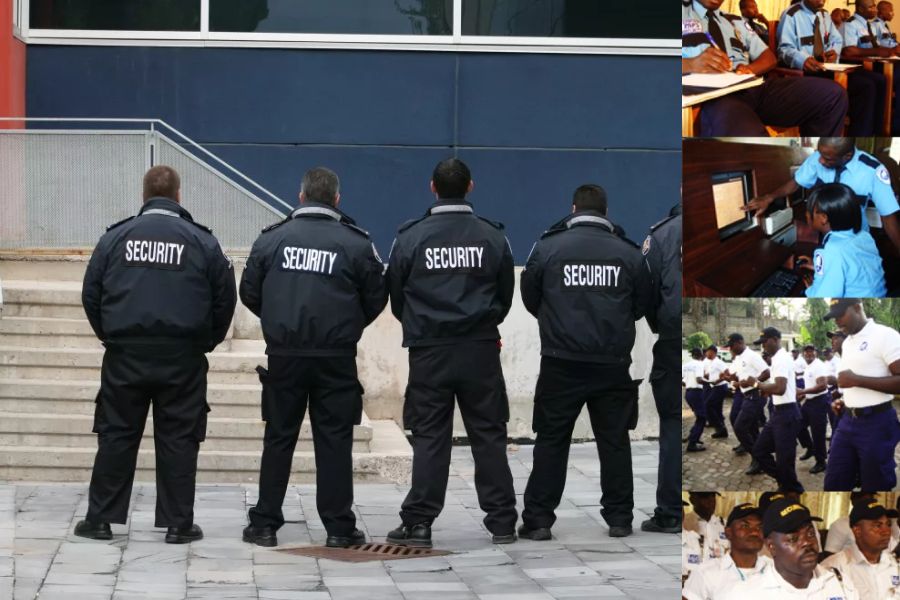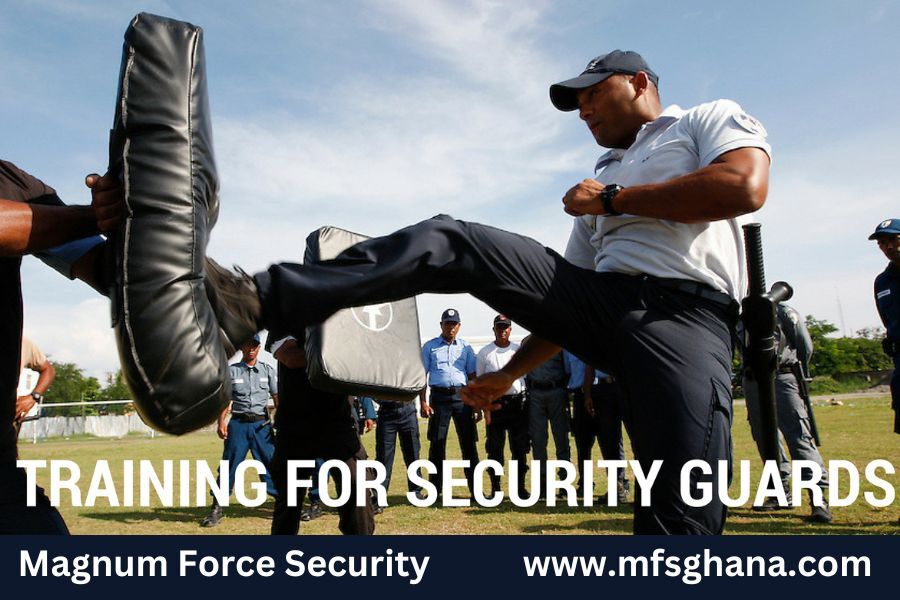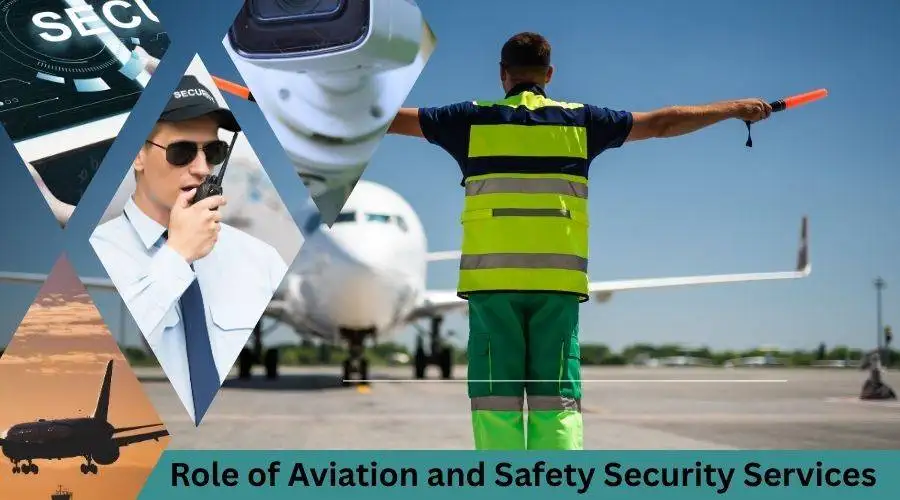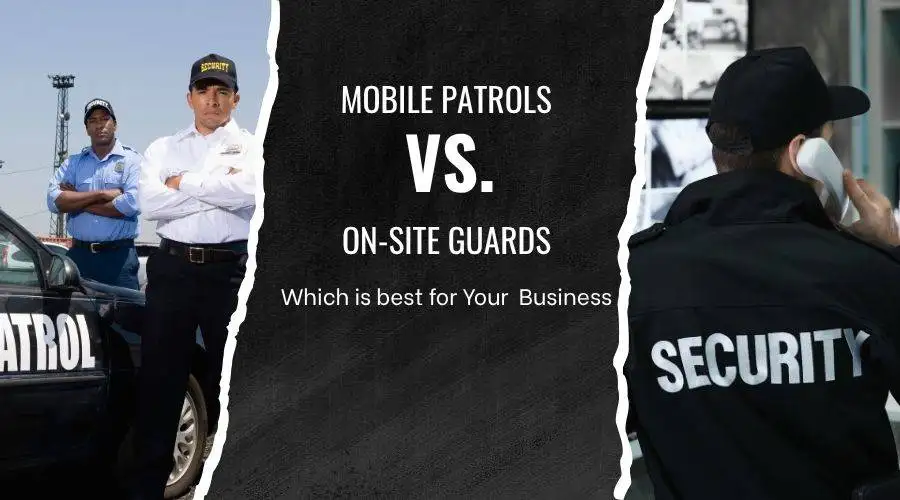In today’s rapidly changing world, security is vital for individuals, businesses, and organizations.
One of the key components of a robust security system is the presence of trained and competent security guards.
Security guards safeguard people, property, and assets across various sectors in Ghana. However, the effectiveness of security guards heavily relies on their level of professional training.
This blog post will explore the importance of professional training for security guards in Ghana and how it enhances their skills, knowledge, and overall effectiveness.
The Role of Security Guards in Ghana
Security guards in Ghana serve as the frontline protectors, ensuring safety, order, and peace of mind.
They are responsible for maintaining a secure environment, deterring criminal activities, and responding swiftly to security incidents.
Security guards are deployed in diverse settings such as residential complexes, commercial establishments, educational institutions, healthcare facilities, and public spaces.
They perform access control, patrolling, surveillance, and emergency response tasks.
Their presence alone is a deterrent, preventing potential security breaches and unauthorized activities.
In Ghana, security guards are integral to maintaining a stable and secure society.
Why Professional Training Matters
While the role of security guards is vital, their professional training elevates their capabilities and effectiveness.
Professional training equips security guards with the necessary skills, knowledge, and competencies to handle the challenges they may encounter.
It goes beyond basic training and provides specialized instruction tailored to the unique requirements of security roles.
Professional training empowers security guards to detect, prevent, and respond to threats and emergencies effectively.
It enhances their situational awareness, decision-making abilities, and critical thinking skills, enabling them to adapt swiftly to evolving security scenarios.

Key Training Areas for Security Guards
To fulfill their responsibilities effectively, security guards in Ghana require training in various key areas. These training areas encompass a wide range of skills and competencies that enable them to address the multifaceted challenges they may encounter. Some of the essential training areas for security guards include:
- Physical Security Training: Physical fitness, self-defense techniques, access control, patrolling, and emergency response procedures are critical aspects of physical security training. These skills enable security guards to proactively deter threats, handle conflicts, and respond swiftly to security incidents.
- Customer Service and Communication: Security guards often interact with individuals in various settings. Training in customer service, effective communication, conflict resolution, and public relations enables security guards to interact professionally, diffuse tense situations, and provide assistance when needed.
- Emergency Preparedness and Crisis Management: Security guards must be prepared to handle emergencies such as fires, medical incidents, or natural disasters. Training in emergency preparedness equips them with the necessary skills to assess risks, manage crises, coordinate with emergency services, and ensure the safety of people and property.
- Technology and Surveillance Training: Security systems and technology play a significant role in modern security operations. Training in CCTV monitoring, alarm systems, access control technology, and other surveillance equipment enhances the ability of security guards to utilize these tools and contribute to comprehensive security measures effectively.
Regulatory and Legal Considerations
Compliance with Regulations and Licensing Requirements
- Adhering to industry-specific regulations
- Obtaining and maintaining proper licensing for security guard services
- Ensuring compliance with local, national, and international standards
Upholding Professionalism, Integrity, and Ethical Standards
- Emphasizing professionalism in behavior and appearance
- Demonstrating integrity and ethical conduct in all interactions
- Respecting privacy, confidentiality, and individual rights
Understanding Rights, Responsibilities, and Legal Boundaries
- Familiarizing security guards with their rights as employees
- Educating on the responsibilities towards clients, employers, and the public
- Recognizing legal boundaries and limitations in their actions
Compliance with regulations and licensing requirements is essential for security guard services to operate legally and ethically.
Upholding professionalism, integrity, and ethical standards ensures that security guards maintain a high level of conduct and interact with clients and the public respectfully and trustworthy.
Understanding rights, responsibilities, and legal boundaries equip security guards with the knowledge to make informed decisions and carry out their duties within the legal framework.
Benefits of Professional Training for Security Guards
Enhanced Skills and Knowledge
- Specialized Training for Security Guards in Ghana
- Empowering Guards with Essential Skills
- In-depth Knowledge of Effective Security Operations
Improved Incident Response and Crisis Handling
- Swift and Effective Response to Security Incident
- Crisis Management Expertise for Quick Decision-making
- Minimizing Risks and Mitigating Damages
Increased Confidence and Professionalism
- Building Confidence through Professional Training
- Developing Strong Communication and Interpersonal Skills
- Fostering Professionalism in Security Guard Services
Career Advancement Opportunities
- Opening Doors to Advancement within the Security Industry
- Recognition of Trained and Certified Security Guards
- Long-term Career Growth and Prospects
Conclusion
MFS Ghana understands the significance of professional training for security guards in Ghana. Our commitment to delivering exceptional security services stems from the belief that well-trained personnel is integral to creating a safe environment. Our comprehensive training programs equip our guards with essential skills, knowledge, and confidence.
Professional training enhances guards’ capabilities, enabling them to respond effectively to security incidents and crises. It fosters confidence and professionalism, facilitating positive interactions with the public and clients. Additionally, it creates opportunities for career advancement within the security industry.
At MFS Ghana, we prioritize the continuous development of our guards to ensure they remain at the forefront of industry standards. Contact us at +233-0302-781921 to learn more about our professional security services and how we can assist you in maintaining a secure environment.






